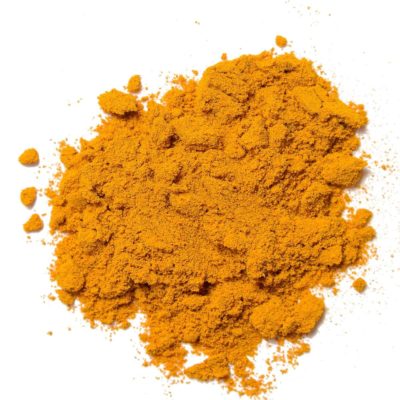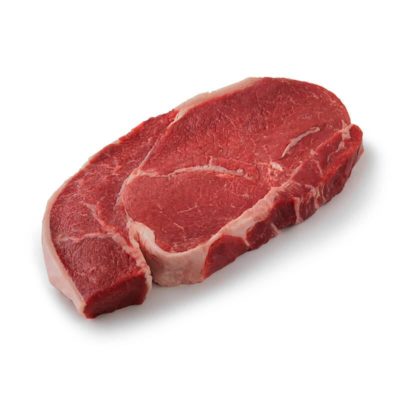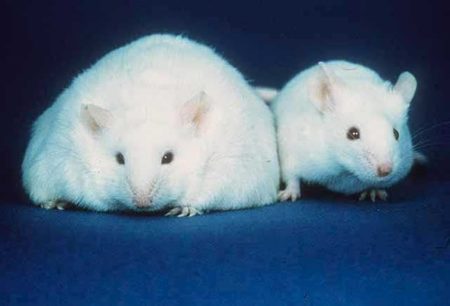Study in Mice Suggests that Compound in Turmeric May Reduce Anxiety and Promote Resilience to Stress
 Chronic stress is a risk factor for the development of mood and anxiety disorders. Researchers have begun to focus on how to promote resilience to stress. Curcumin is a micronutrient found in turmeric that has anti-inflammatory and antidepressant effects and may promote such resilience.
Chronic stress is a risk factor for the development of mood and anxiety disorders. Researchers have begun to focus on how to promote resilience to stress. Curcumin is a micronutrient found in turmeric that has anti-inflammatory and antidepressant effects and may promote such resilience.
Researchers studying human depression often design studies to see how mice with chronic social defeat stress respond to various interventions. Mice who are repeatedly menaced by a larger mouse begin to show symptoms that resemble human depression, such as social avoidance, lack of interest in saccharin compared to plain water (a stand-in for loss of enjoyment or anhedonia in humans), and anxiety.
In a 2018 article in the journal Neuropsychopharmacology, researcher Antonio V. Aubry and colleagues described the effects of curcumin on mice undergoing chronic social defeat stress. Mice who were given a diet that consisted of 1.5% curcumin showed a 4.5-fold increase in resilience to social defeat stress, measured by their performance during a test of social interaction. Among the 129 mice in the study, 64% showed the increase in resilience, the remaining 36% did not respond to the curcumin diet and had the normal ‘depressed’ response. The mice who responded well to curcumin released less of the stress hormone corticosterone, and they also had lower levels of the inflammatory marker IL-6.
All of the mice on the curcumin diet showed reduced anxiety during tests that forced them to travel through open spaces (when they prefer to stay in more enclosed spaces or move along the edges of an enclosure).
Red Meat Interacts with Bacteria in the Gut to Raise Heart Disease Risk
 A 2018 study by a group of researchers at the Cleveland Clinic have clarified the way that a diet heavy in red meat may lead to heart disease. The research centers on trimethylamine N-oxide (TMAO), a gut bacteria byproduct that is formed during digestion. When gut bacteria digest choline, lecithin, and carnitine, nutrients that are common in certain animal products and red meat, TMAO is produced.
A 2018 study by a group of researchers at the Cleveland Clinic have clarified the way that a diet heavy in red meat may lead to heart disease. The research centers on trimethylamine N-oxide (TMAO), a gut bacteria byproduct that is formed during digestion. When gut bacteria digest choline, lecithin, and carnitine, nutrients that are common in certain animal products and red meat, TMAO is produced.
In an article by Robert A. Koeth and colleagues in the European Heart Journal, the researchers show that diets that rely on red meat as the main protein source lead to more circulating TMAO than diets in which white meat or something other than meat is the primary source of protein. They found that in people who eat a lot of red meat, the kidneys are less efficient at expelling TMAO, and levels creep even higher. High levels of TMAO have been linked to hardening and narrowing of the arteries (atherosclerosis) and heart disease complications. High levels of TMAO in the blood can be a predictor of heart attack, stroke, and death.
The study of 113 participants consisted of three different diets that each participant followed in random order (with a washout period in between each diet). A month of eating a diet in which red meat was responsible for at least 25% of participants’ daily calories led to higher levels of TMAO in the blood and urine. TMAO increased threefold during the red meat diet periods compared to periods in which white meat or non-meat protein were the source of those calories, and in certain participants, TMAO increased as much as tenfold. When participants stopped eating the red meat diet, their TMAO levels fell over the following month.
Rich Western Diet Reprograms Immune Cells in Mice
A 2018 article by Anette Christ and colleagues in the journal Cell describes the process by which a Western diet can trigger changes to the immune system in mice. The mice fed a calorically rich Western diet started to show systemic inflammation. Blood measures of inflammation returned to normal after the mice resumed their regular diet, but their immune responses remained heightened, as if the immune system had been trained to overreact.
The vast majority of deaths in Western cultures are caused by noncommunicable diseases such as type 2 diabetes and cardiovascular disease, which have been linked to lifestyle factors such as diet and exercise. The immune system has two wings: one that responds to specific pathogens, and one that mounts general protection against infection and is triggered by immune signaling receptors. However, according to Christ and colleagues, in addition to reacting when microbes are present, this second wing may also respond to “sterile” danger signs, such as consumption of a Western diet. The immune system may become trained to react this way chronically, something that the researchers believe may trigger inflammation in noncommunicable diseases.
The Western diet triggered epigenetic changes to the mice’s immune system. Epigenetic changes are ones that affect the structure of DNA, for example how tightly it is packaged. In the case of the Western diet, these changes resulted in a heightened immune system that launched strong inflammatory responses in reaction to even small stimuli. Myeloid cells from bone marrow were reprogrammed to proliferate and provide a stronger immune response.
The researchers also took human monocyte cells trained with LDL (“bad”) cholesterol and stimulated them with lipopolysaccharide (an inflammatory compound made of fat and sugar). The cells showed a heightened immune reaction similar to that seen in the mice.
Mice genetically engineered to lack the inflammasome NLRP3, which activates inflammatory responses, did not show the systemic inflammation or the enhanced myeloid activity when fed the Western diet, so Christ and colleagues believe NLRP3 may play an important role in mediating the immune response to the Western diet.


